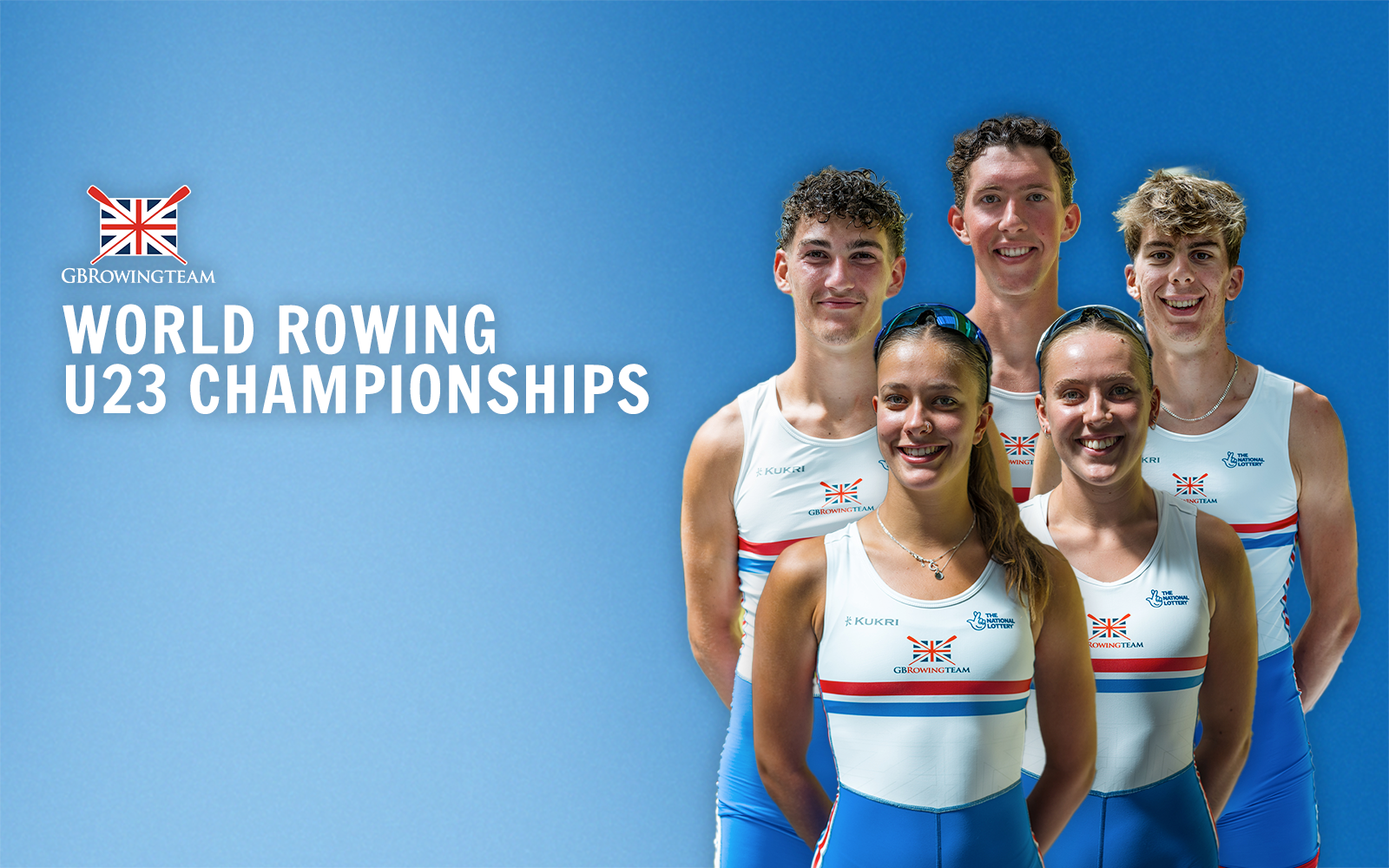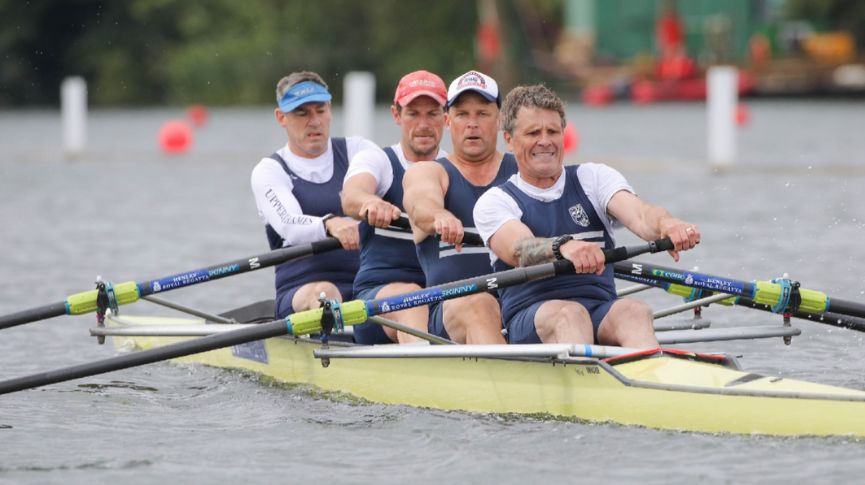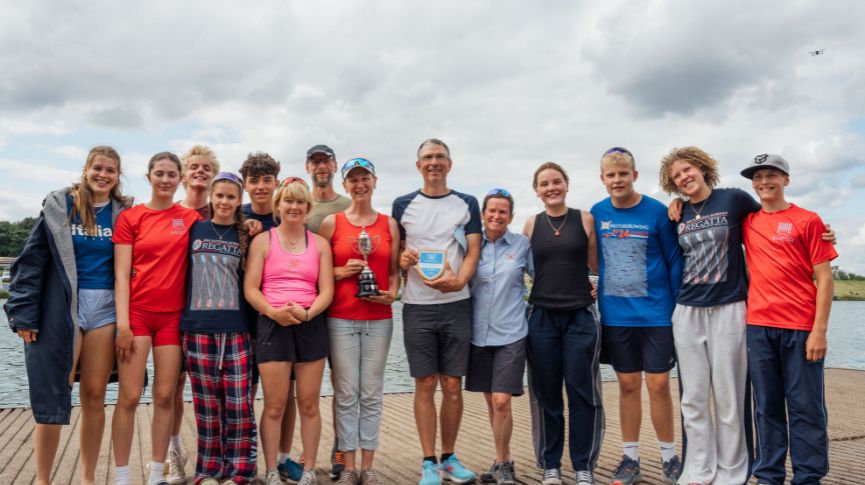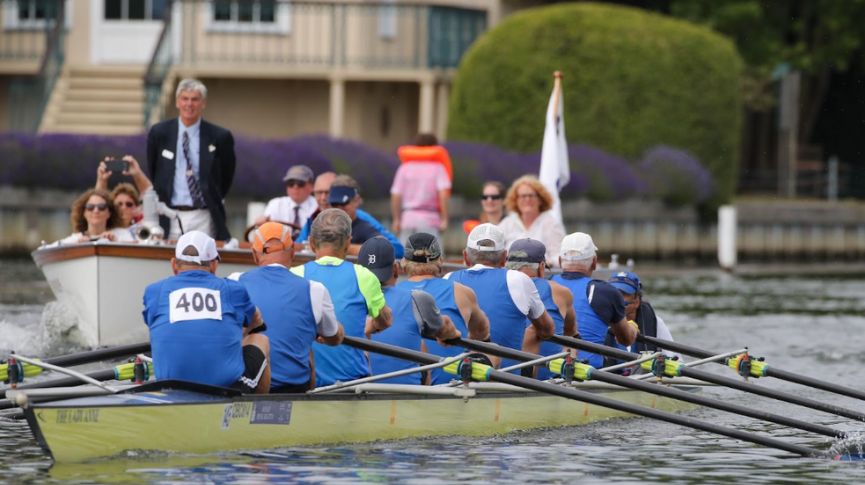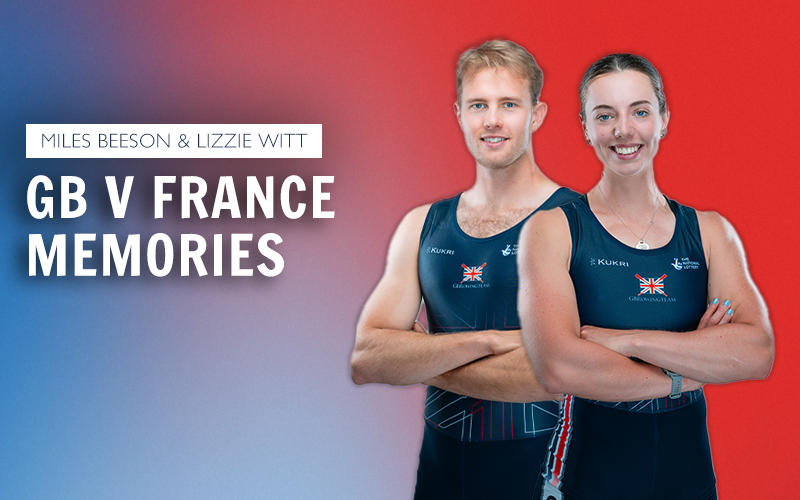In conversation with coaches Jurgen Grobler, Paul Thompson and Tom Dyson
Matt Dickinson, chief sports writer at The Times, sits down with Jurgen Grobler, Paul Thompson and Tom Dyson to discuss coaching

When Jurgen Grobler walked into the Leander Club in 1991 and explained that he was there to coach Steve Redgrave, one member turned to him and remarked “very good. But what do you do for a living?”
So much has changed since those largely amateur days; full-time professionalism, modern equipment, countless advances in sports science and nutrition, endless reams of data. “So many toys for coaches,” Grobler explains, remarking that he can ride his bike alongside the lake at Caversham and study real-time analysis of the boat’s movement, and each rower’s input, to umpteen decimal places.
What used to be just a stopwatch and stroke rate is now, through force and angle sensors, and boat accelerometers, a detailed biomechanical study to PhD level.
This is the frontier that any ambitious nation is required to explore and yet as we sit with Grobler, Paul Thompson and Tom Dyson in a coaches’ room at Caversham and pool all the vast coaching experience from the most successful rowing nation on the planet, it is what has not changed over the decades that shines through.
The human relationship between coach and athlete remains at the centre of everything. We might call it a form of chemistry, except understanding what makes people tick is an art as much as a science.
“You take two cooks, give them the same recipe, same ingredients and one usually ends up tasting better,” Grobler says. “A little dash of salt can make a big difference. It’s the same with coaches. That’s why I always think it is a little bit art.”
Dyson, lead coach of the Paralympic team, studied chemistry at Cambridge University where he was a lightweight rower, and came to coaching very much believing in a modern, scientific approach.
“But the more it’s gone on, I’ve questioned that,” he says. “I’ve taken it away from the numbers. I think someone will really crack it in the future, but if you aren’t clever, you can get dragged in and you can’t see the wood for the trees. You can spend so long looking at numbers that you might miss the people element, which is the most important bit.”
People lie at the heart of it all – teaching them, cajoling them, pushing them, helping athletes to explore their limits. Grobler is renowned among generations of Olympic medallists for his motivational speech about the moment in a race when the body is depleted, the world starts to go dark and the “man with the hammer” starts bashing away at an athlete’s legs and arms. And the need to fight him off with one more stroke. And then another.
“They must want to be prepared to challenge their bodies,” he says. “They will cry sometimes. That’s why they come.”
But it is not just about cracking the whip. With an eye to other sports, we talk about the misconception that Sir Alex Ferguson was a tyrant. Notorious for his verbal tirades – the infamous ‘hairdryer’ treatment – less known is that the legendary Manchester United manager once said “the most important words in sport are ‘well done’”.
“That’s a big challenge for coaches, picking them up,” Grobler says, adding that while trained sports psychologists can bring real value, it is the coach who must set the tone, the attitude for any crew. “Getting the rower to access the right mental state on the day. That’s probably the most critical part of the job,” Dyson says.
Of course being on top of your technical brief is essential. With the Para-athletes, Dyson has a small group but the experience within the squad can be vastly different. Far from being a problem, he sees that disparity as a benefit.
“Almost every year we have to start from scratch with someone and it can really remind you of the basics that can be neglected,” he says. “Habits slip. So it’s good to have new people in challenging established behaviours, making sure you build everything on very strong foundations.”
Even dealing with some of the best rowers in the world, all three coaches talk of the importance of reinforcing small-boat skills, in single sculls or pairs, to test techniques and expose flaws. Pairs and singles remain the essence of trial racing each year.
Working on technical improvements can be painstaking, frustrating work which is why the coaches also talk of the need to have a clear vision, “imagining where you want a boat to be in four years’ time,” according to Thompson, who has overseen unprecedented success among the women’s squad. Creating that mental picture is particularly critical in a year after the Olympics when there has been such a transformation in the squad.
“We have a quicker turnover,” Grobler says. “That has changed a bit. Maybe we only have them for one Olympics. They are well educated, maybe have options that don’t involve the river at 7am.”
A new wave keeps coming in and you have to move with them. Not even Grobler’s reputation and record can get him by. “You don’t say I coached Redgrave to this, Pinsent to four golds,” he says. “The new guys don’t want to hear that. They want their way. If you copy, then you stand still.”
Once you have that vision, you must stay true to it. Grobler cites the example of Arsene Wenger, the Arsenal manager, who has had so much stick. “All that criticism,” Grobler says. “That’s pressure. He has it every three days, planes flying over the stadium with signs ‘Go now!’ To keep your vision, to keep your cool, to stay focused on your job, it is not easy but you must.”
He draws an analogy: “Some days you have to take a bypass, if there are problems, roadworks, but always come back to the highway.”
Thompson has his own version, which he learnt from a major influence on his career, Reinhold Batschi, the Romanian coach who revolutionised Australian rowing through the 1980s and 1990s. “Batschi, he always used to say, as a coach, you have to have your hands on the steering wheel and your foot on the accelerator. You need to be in charge.”
But they all note that it is not just about lecturing. The best coaches learn from their athletes too. “I like to be challenged,” Dyson says. “If they ask ‘why are we doing this’ and I can’t answer clearly then I am doing something wrong.”
In Britain, they do all this with good funding, and the best facilities. But the trio believe that these coaching fundamentals work across any level. Science – new breakthroughs – excite them, but the simple, enduring pleasures remain the best.
“A stretch of water, speedboat, megaphone, boat and crew. Let’s go! You can create big things with that,” Thompson says. “Having the boats under a bridge off the A404 at Marlow and running it out of a scout hut was something really challenging. None of this at Caversham was around then. But that makes you think about what’s important, what really makes a difference.”
Grobler concurs: “Rowing doesn’t grow in castles. With personality, love for the sport, you can accomplish a lot. You make the most of whatever environment you have.”
And there are no shortcuts. “It’s the noble sport,” Thompson chips in. “Unlike some other sports, it’s between the horses not the chariots.”
We are back to that human element. Dyson says it is so important that, for this Olympic and Paralympic cycle, they have even set out to “make better people”.
“We sat down and said ‘we’ve nailed the medals thing’ but what else? If they take something on, a qualification, charity work, some way to grow. That’s a focus for this cycle, giving people a bit more space. Will it have an impact on performance? We’ll give it a try.”
He adds that good coaching requires taking risks, and letting rowers make mistakes. “I tried to correct everything straightaway at first but that’s not always the best approach,” he says.
But perhaps we should leave the last word to Grobler, with all his phenomenal success, coaching Olympic gold-medal crews since 1972. To think he came to Britain all those years ago with a point to prove, to himself as much as anyone, having learnt his trade in East Germany under Hans Eckstein.
“In the GDR it was always ‘the system’ not the coach. So I wanted to know ‘what can I do when I don’t have the system?’ What are my skills to teach, motivate and attract at the top level? That was one of the big challenges.”
He has accomplished everything in a record-breaking career yet, surprisingly, he says that other coaches can have even greater influence.
“If you talk to the athletes, they always remember their first coach. Those coaches who show the first steps, they are crucial for our sport. That’s where it starts, that relationship which can affect someone’s love for the sport. That’s where it all starts, right back to [Steve] Fairbairn teaching 100 years ago.”
Matt Dickinson is the chief sports writer at The Times. Follow him @DickinsonTimes


